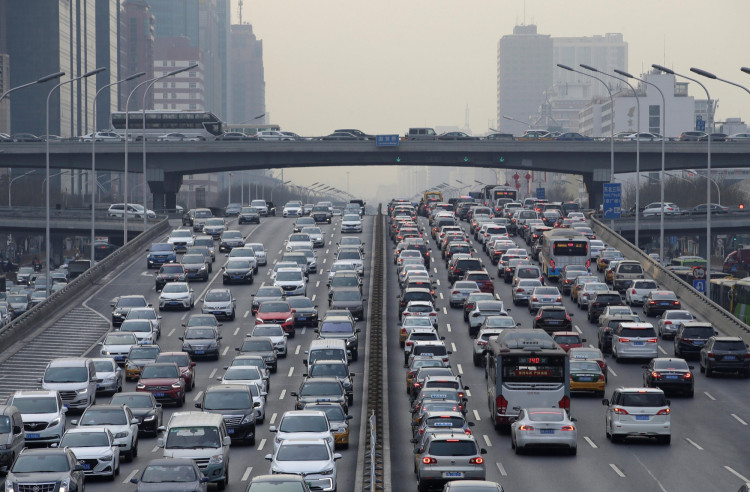China's already weak, and now paralyzed, car industry reported an unprecedented 80% decrease in car sales for February -- the biggest monthly plunge on record -- as the Covid-19 outbreak kept buyers inside their homes and employees away from car factories.
Data released Wednesday by the China Passenger Car Association (CPCA) revealed the massive extent of the sales destruction resulting from infection fears generated by Covid-19 on China's beleaguered car industry, which has been plagued by plunging sales for the past two years.
CPCA data also reveals that wholesales from carmakers to dealerships likely plummeted 86% in February. It does, however, show average daily sales improving toward the end of February compared to the first three weeks. In addition, the Stoxx 600 automobiles and parts index were down 0.1% as of early morning in Frankfurt, Germany.
"Dealers returned to work gradually in the first three weeks of February and their showroom traffic is very low," said CPCA, noting it expects February's sales drop will be the steepest of this year.
Analysts noted all domestic and foreign car firms including market leader Volkswagen AG and newcomer electric-car maker Tesla Inc. are still reeling from the Covid-19 outbreak that hammered both demand and production.
Millions of companies in China are in danger of shutting down or incurring huge losses as consumers stay home and factory output remains at anemic levels. China's manufacturing sector contracted sharply in February as many employees stayed home or were prevented form traveling by lockdowns in many Chinese cities.
The Caixin/Markit Manufacturing Purchasing Managers' Index (PMI) released Monday came in at 40.3 for February, its weakest reading ever. Economists in a Reuters poll had expected a reading of 45.7. PMI readings above 50 indicate expansion, while those below that level signify a contraction.
Local governments are doing what they can to boost car sales to save the industry from even more damage. The Foshan city government this month began giving out rebates of as much as $430 (RMB3,000) to car buyers. Guangzhou's municipal government will give $1,400 (RMB10,000) to buyers of new-energy vehicles (NEVs). On the other hand, a development zone in the city of Xiangtan in Hunan province started offering $430 to buyers purchasing vehicles made by Zhejiang Geely Holding Group Co.
The central government in Beijing might soon get into the act. Analysts said Beijing can help by reducing the 10% car purchase tax, easing congestion-related purchase bans and offering incentives for rural residents to buy NEVs.






